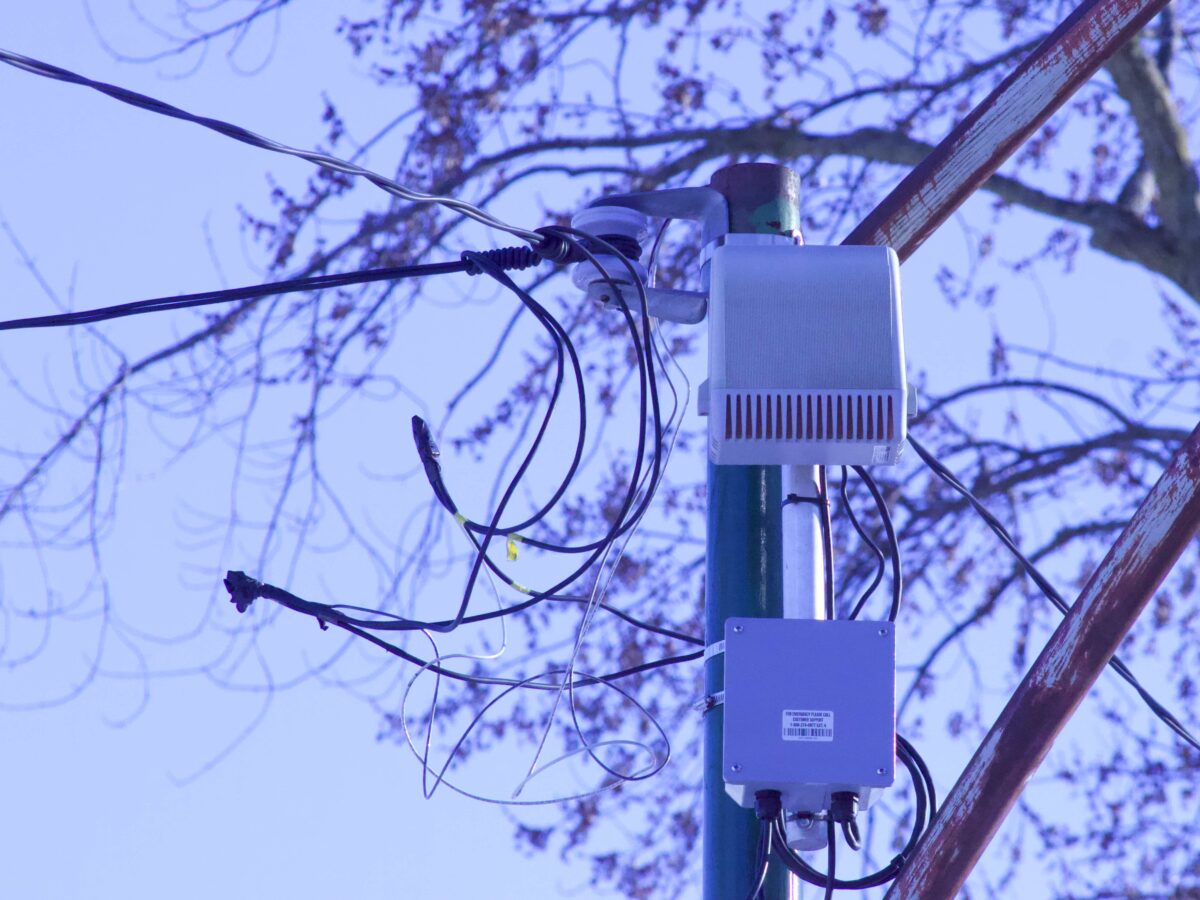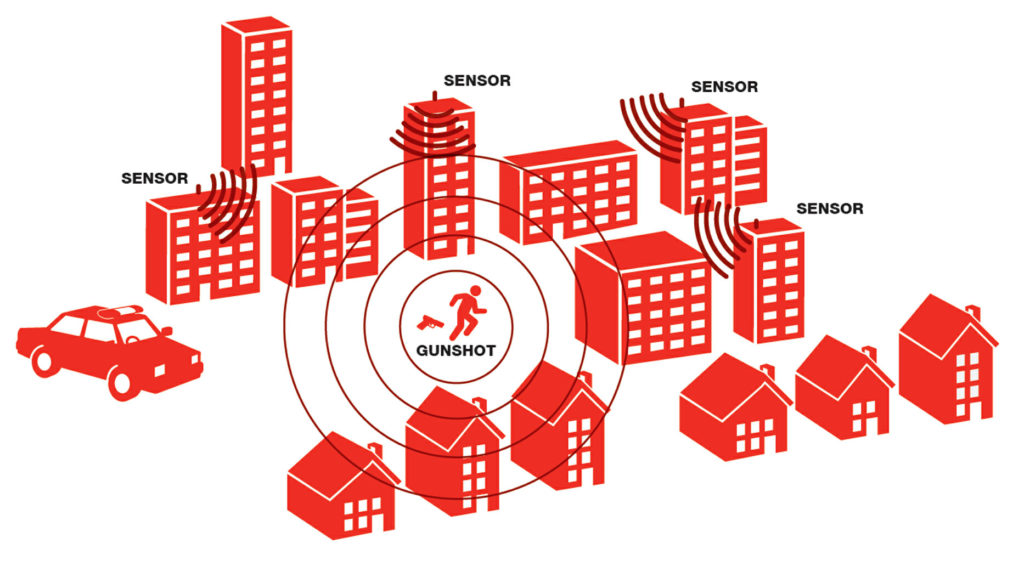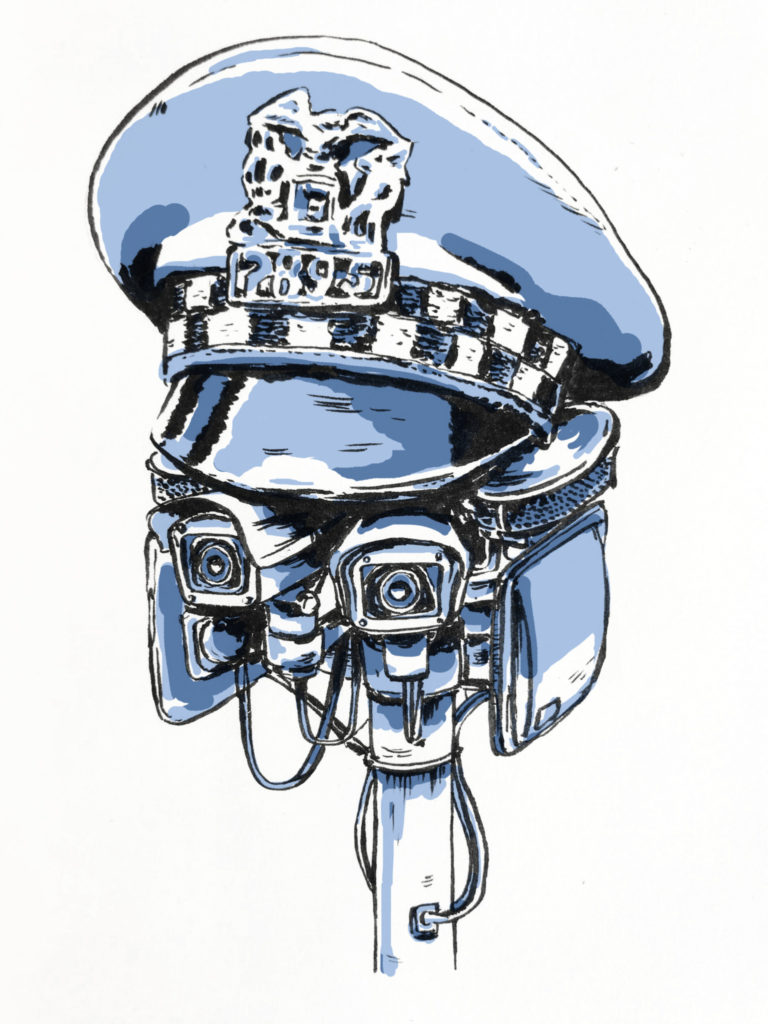During his campaign for mayor, Brandon Johnson ran on a promise to radically transform the city’s approach to policing that included scrapping the department’s use of controversial surveillance technologies like ShotSpotter, the gunshot-detection company that was rebranded as SoundThinking last year.
“ShotSpotter has been a failure,” Johnson said last March. “And these tools have been proven not to work. We can find a whole lot of things to spend $10 million on.” Since taking office, the mayor has remained tight-lipped about whether he intends to follow through on his campaign promise. ShotSpotter’s current contract extension expires February 16.
In an emailed statement, a ShotSpotter spokesperson wrote: “SoundThinking (formerly ShotSpotter) has supported the City of Chicago for over 6 years across multiple mayoral administrations, providing the precise location for the vast majority of gunfire incidents within the coverage area in less than 60 seconds, allowing first responders to render swifter aid to victims.”
An internal ShotSpotter email as well as several obtained from the Mayor’s Office via Freedom of Information Act (FOIA) requests shed light on the company’s efforts to lobby Johnson to renew the contract. The internal email also shows the company’s initial reaction to Johnson’s April 4 runoff victory.
In the days after Johnson won the runoff election, ShotSpotter’s stock (NASDAQ: SSTI) lost more than 25% of its value. It hasn’t recovered since. An email ShotSpotter CEO Ralph Clark sent to employees on April 5 indicates he felt the stock price drop was a direct result of Johnson’s election.
“I am sure many of you have seen the results of the Chicago Mayoral election and the financial market (over) reaction to Mayor-elect Johnson’s public campaign position on ShotSpotter,” Clark’s email read. Clark added that ShotSpotter would soon begin trying to lobby the city to keep the contract.
“The company is diligently working on a multi-prong approach to shore up the strong existing support ShotSpotter has amongst Chicago PD, elected Alderman and the residents who understand the real-world positive impact our technology has contributed to Chicago for close to a decade,” Clark wrote.
Publicly, Clark issued a statement congratulating Johnson on his victory. The following week, ShotSpotter rebranded itself as SoundThinking.
RELATED STORY
Shotspotter’s contract with the city began in 2018 when then-Mayor Rahm Emanuel inked a three-year $33 million contract with the company. Former Mayor Lori Lightfoot extended the contract twice during her term.
Activists, some of whom are now advising Johnson on the fifth floor of City Hall, have for years called on the city to cancel the contract. They point to two 2021 studies that raised questions about ShotSpotter’s impact on communities. One, a report by the Office of Inspector General (OIG), found that between January 1, 2020, and May 31, 2021, fewer than 10% of Shotspotter’s gunshot alerts were linked to documented evidence of a gun-related crime.
“At least some officers, at least some of the time, are relying on ShotSpotter results in the aggregate to provide an additional rationale to initiate [a] stop or to conduct a pat down once a stop has been initiated,” the report read.
The second study, an analysis by the MacArthur Justice Center, found ShotSpotter alerts led to disproportionate police deployments in Black and Latinx communities. A review of that study commissioned by ShotSpotter disputed this finding, saying its use of data from the Office of Emergency Management and Control (OEMC) was “not a reliable measure of ShotSpotter’s efficacy” and that its conclusions were “baseless and misleading.”
ShotSpotter executives and police contend that its ability to quickly dispatch police to crime scenes and save gunshot victims’ lives makes the technology worth it. Ralph Clark, the company’s CEO, wrote a response to the OIG report in which he argued that ShotSpotter alerts sent authorities to “1,131 crime scenes where at least one gunshot wound victim was found” in Chicago during the period the OIG analyzed. Last week, Clark penned an op-Ed in the Defender reiterating that argument.
Larry Snelling, who Johnson appointed to lead CPD in September, has expressed an affinity for technology. In a November earnings call with investors, Clark said that he was “delighted” by Snelling’s appointment. “He’s been a very strong local defender of technology at large and specifically acoustic gunshot protection,” Clark said. “And so that’s really, really quite encouraging.” Last week, Block Club reported that Snelling reiterated his support for ShotSpotter at a public meeting in Chinatown.
ShotSpotter’s lobbying efforts reached City Hall’s fifth floor in the fall. Emails obtained from the Mayor’s Office via a FOIA request show that the company’s vice president of public safety solutions, Gary Bunyard, spoke by phone to Rich Guidice, Johnson’s chief of staff, on October 6.
The Weekly also obtained a “fact sheet” that ShotSpotter sent to Guidice later that day showing alerts the company said it reported to CPD in 2020, 2021, 2022, and January through July 2023. The fact sheet has more alerts than are listed in CPD’s Violence Reduction Dashboard—about 8,000, or 21% more, in 2020; 6,939 more (14.7%) in 2021; 2,747 more (6.6%) in 2022; and 615 more (2.4%) for January 1 to July 31, 2023.
A spokesperson for the Mayor’s Office who responded on behalf of the Office of Public Safety Administration (OPSA), which handles ShotSpotter alerts, said the company’s numbers were correct and the discrepancies were due to a change in how the company labels alerts. The spokesperson added that the discrepancies in the city’s dashboard are being addressed and “the archival process [is being] updated to reflect the accurate numbers published by Shotspotter.”
Clark’s April 5 email to ShotSpotter employees indicated that the company was working on securing a meeting with Johnson “to push back on the false narrative that has been circulating amongst some of his supporters as well as articulate our ability to a critical part of his public safety strategy he will need to execute as a governing vs campaigning Mayor.”
Representatives from the company scheduled a meeting between Clark, Bunyard and mayoral adviser Jason Lee in October, but it was repeatedly moved, according to emails obtained via a FOIA request.
Lee said he met with ShotSpotter executives on November 4 in what he described as a “solely introductory meeting that had been in the works for several weeks.” Lee said he’d never met with ShotSpotter before then, adding that he’s “obviously willing to meet with people who want to meet and share information.” He also said that no one in the Mayor’s Office had discussed the contract with ShotSpotter representatives.
The ShotSpotter spokesperson said that the meeting was “to provide background information regarding the role that ShotSpotter plays in the City of Chicago.”
On the November 8 earnings call, Clark told investors that Johnson’s 2024 budget included funding for acoustic gunshot detection. Johnson “has made the right decision, we believe, to increase the law enforcement budget, and there is a specific line item in that budget calling for acoustic gunshot detection,” he said.
The 2024 budget passed one week after the earnings call. In it, a line item for software maintenance and licensing in the OPSA was listed at $8,967,998 from the city’s emergency communication fund.
The ShotSpotter spokesperson said: “While SoundThinking has no knowledge of what the City of Chicago’s final decision may be, we stand ready to support the city in making an informed decision that best supports the shared goal of creating safer communities in Chicago.”
Asked about the contract renewal, Lee said: “When the decision is made, it will be announced.”
Lee referred additional questions about the contract to Dan Casey, the director of public safety IT at the OPSA. Casey referred ShotSpotter questions to CPD. A CPD spokesperson referred questions about ShotSpotter to the OPSA, which does not currently have a press officer, and to a spokesperson for the Mayor’s Office.
Jim Daley is the Weekly’s investigations editor. Max Blaisdell is a fellow with the Invisible Institute and a staff writer for the Hyde Park Herald.
RELATED STORIES
CPD Reported Hundreds of Missed Shootings to ShotSpotter
The department reported misses more than 550 times in 2023, and a public safety director complained about a 55-round miss in 2022.
CEO Says Johnson’s 2024 Budget Includes ShotSpotter
The mayor pledged to end the contract during his campaign.
The Shots Heard Round the City
gunshot is fired. Depending on where in the city it is, the sound might not just be picked up by human ears. By early next year, almost 130 square miles of Chicago will be monitored for gunshots by mechanical ears as well, via a technology called ShotSpotter. ShotSpotter sensors—which have already been installed on rooftops…







Fascinating discussion! Here’s a link to a resource that provides more insights and expands on your points